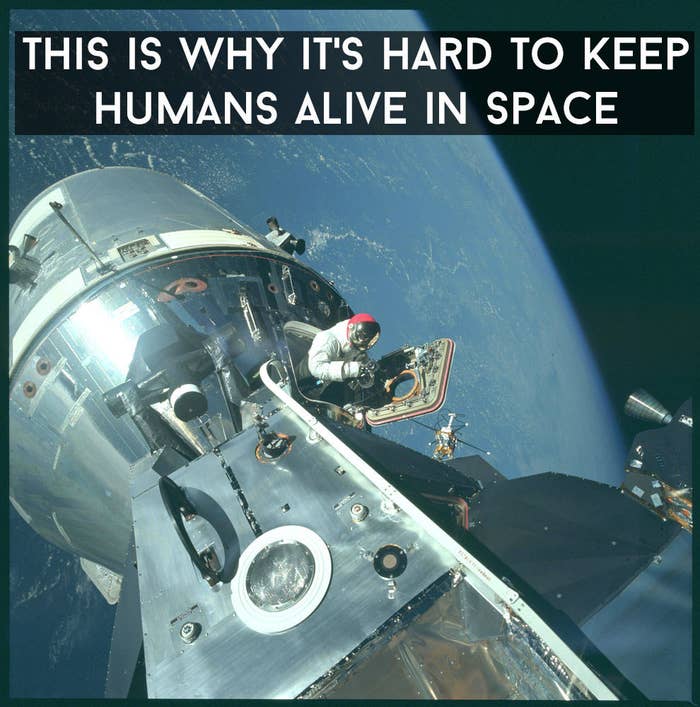
On Tuesday, a Briton will go into space for the first time in more than 20 years. Tim Peake will set off in a Soyuz rocket to the International Space Station.
Dr Kevin Fong is an astrophysicist and doctor. He's worked with NASA on putting humans into orbit. He's giving this year's Royal Institution Christmas lectures on how to survive in space. He told BuzzFeed Science why keeping us alive out there in the universe is such a challenge.
1. First and foremost, you might get vaporised.
There's only so much that medicine can do for astronauts. "When I first got involved with this, I thought: 'I'm a doctor, I've got a degree in astrophysics, I'll probably have a lot to offer,'" says Fong. But, he says, it wasn't as true as he thought. "The big thing is the science and technology and engineering that protects the astronauts."
That's because the amount of energy involved in getting someone to space is enormous. "You face this gargantuan threat of the release of energy as you hurl people and objects into space," he says. "For the launch, that first 250-odd miles, you are entirely reliant on this army of designers and engineers and operations crew who are managing this absolutely outrageous release of energy and controlling it well enough to get the crew off the pad and into space without having them ripped apart by those forces.
"Either it all works and everybody lives, or it doesn't and everybody dies, and there's nothing that I or any other doctor could do if it goes wrong."
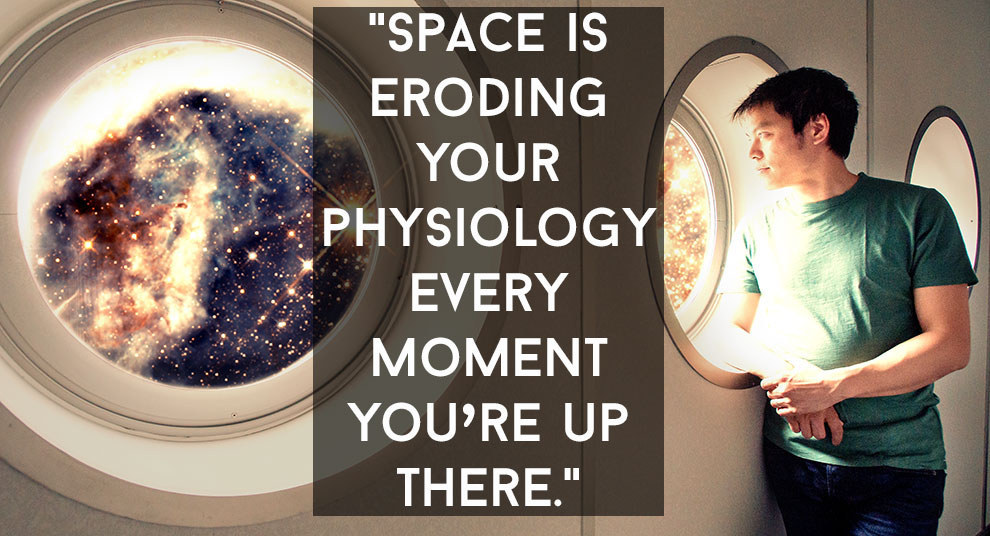
2. Once you're in space, things start to go wrong with your body. For a start, your muscles start to waste away.
"When they arrive on the station, then you as a physiologist or as a clinician begin to have more of a role to play," Fong says. "Keeping healthy in space is non-trivial. It's not just a case of eat your fruit and veg and do a bit of exercise.
"This is an environment that is basically eroding your physiology for every moment that you're up there."
The main threat, he says, is weightlessness. "It looks like fun, but it has a lot of quite profound effects on your body." Your muscles, which are no longer working to counteract gravity, get weaker through lack of exercise.
3. And your bones.
You might think your bones are fairly permanent, but they build up and waste away as muscles do. "Your bones also have a job to support your body against gravity, and they also reduce," says Fong. The load-bearing bits – the big bones of your legs, your pelvis, your spine – are particularly badly affected. They become steadily weaker and less dense.
"It leaves you much more prone to fracture when you return to Earth."
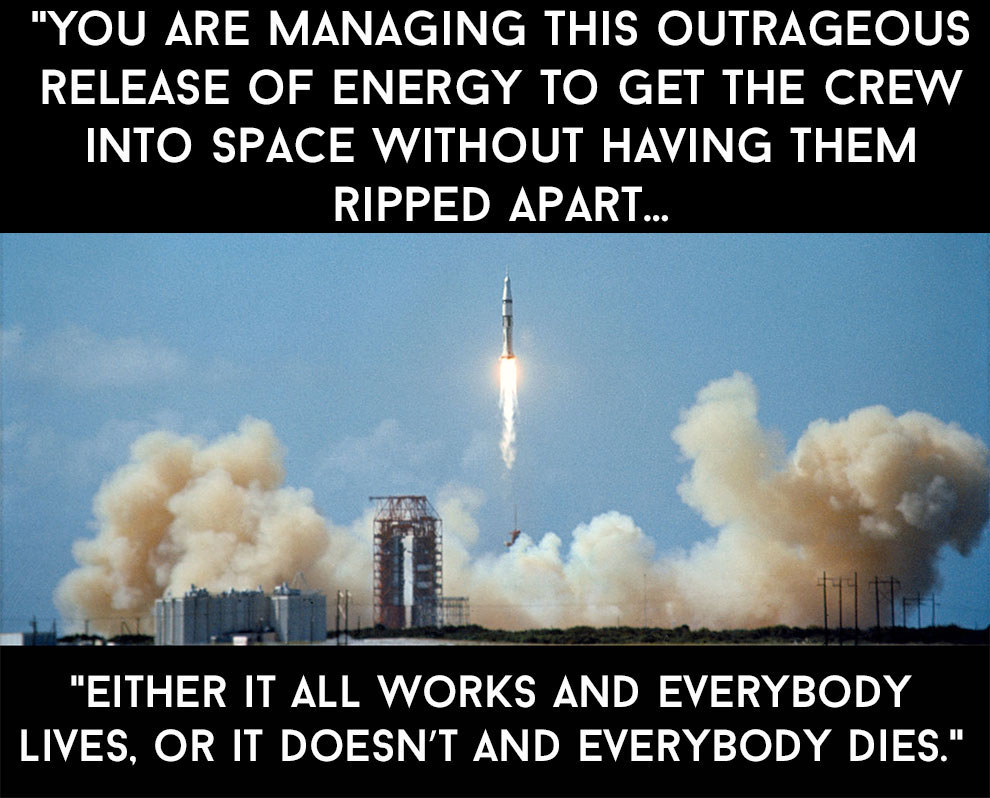
4. Your heart and blood vessels start losing their abilities too.
Your cardiovascular system does a lot of work against gravity as well, says Fong. "When you go from lying on the sofa to standing upright, it has to enact a set of reflexes that cope with that change in posture and pressure in the system."
All those reflexes slowly erode when you are in space, he says. It's a real problem when you come back to Earth, because you rely on them to keep blood flowing to your brain properly when you stand up or sit down.
5. Most astronauts also get pretty sick when they first go to space.
Weightlessness causes problems for your inner ear, the organ that controls your balance and senses how you're moving. "There are two systems that detect acceleration in your inner ear," says Fong. "There's one that detects rotational acceleration – you going round and round – and one that detects linear acceleration, forwards and back, up and down." When you're on Earth, the linear accelerometer is always being pulled down by gravity, and that's how you sense whether you're standing upright or upside down. It's a sort of extra sense.
But when you're weightless, your brain is no longer getting that information. It's extremely disorienting. "The effects of that are that you feel sick, or you are sick, for the first 48 to 72 hours," says Fong. "Most astronauts get it, rookies worse than veterans."
6. The inner-ear problem has a whole bunch of knock-on effects, as well.
It can really knock you sideways, in fact. "You experience problems with disorientation and spacial orientation, so knowing where you are within the space station can be tricky at times," says Fong. "You have trouble with hand-eye coordination, trouble with tracking moving objects. You can have illusions of motion."
It's funny, he says, because most people aren't even aware that they have this extra sense. But "when you knock it out, the resulting disablement is profound".
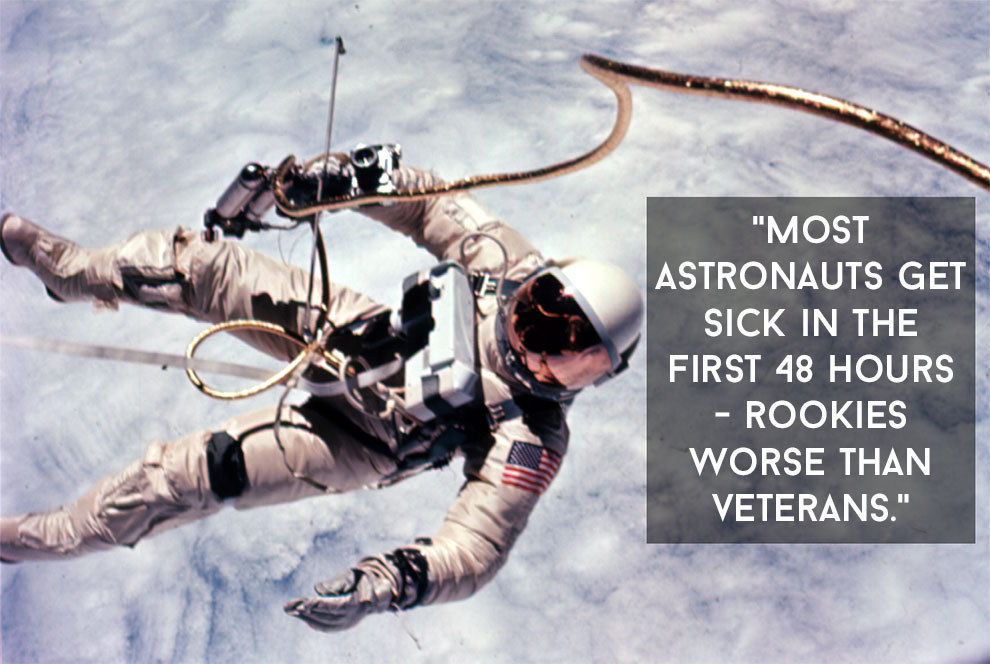
7. Your immune system gets weaker.
"There are other effects that are either more recently discovered or less well understood," says Fong, and the effect of space travel on the immune system is one. There is an effect – space missions suppress the immune system – but it's not clear why.
"If you have a high degree of physical stress or emotional stress for a long time, you have immune impacts," he says. "So is it that being on a space mission is stressful, or is it something specific to the space environment that's doing that?"
8. Your blood gets thinner.
"You get these quite weird changes in the way that your bone marrow manufactures blood cells," says Fong. "So you get this sort of space anaemia, which is not so well understood."
9. Your brain might start to swell and make your eyes change shape.
One recently discovered problem is "increased intracranial pressure". "As the name suggests, you get a rise in pressure in the brain of some astronauts, particularly during a long mission," says Fong.
That has a knock-on effect. "It seems to be coupled with a change in the shape of the eyeballs," he says, as the brain presses on the backs of the eyes. "It's enough to change your eyeglass prescription. Some of them end up needing to wear different prescription glasses."
Some astronauts end up taking special glasses with them on space missions to compensate – "the sorts of off-the-shelf reading glasses you might see in Boots".
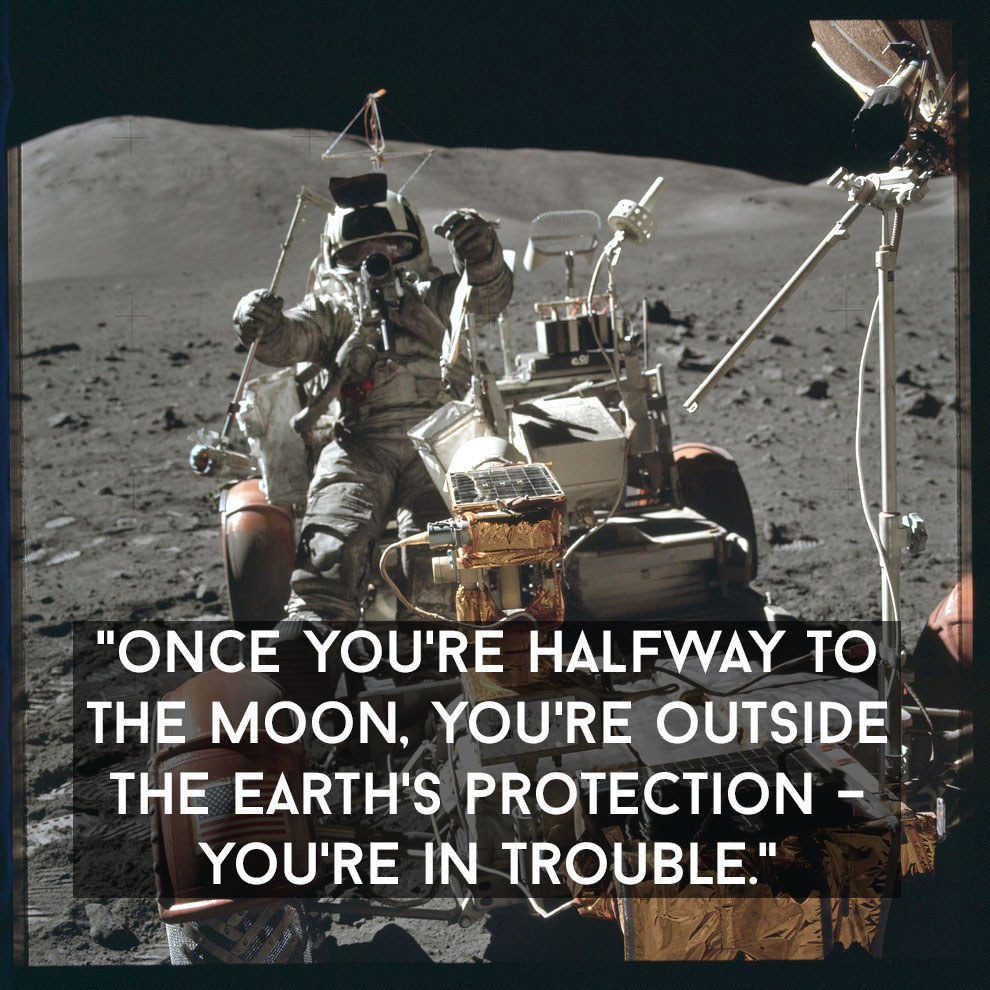
10. Astronauts may face psychological pressures, as well.
Space is a stressful environment. "You are living inside a machine on which your life depends every second of every day," says Fong. You're also cut off from everyone you know. "There's lots which could be stressful. What [astronauts] talk about are things that are happening not on the space station.
"There are things happening at home, and you can't control them, because you're spinning around the Earth at 17,500mph."
It used to be much more cramped and much more lonely. For the Apollo missions, says Fong, you'd have people trapped for several days in a space not much larger than a "couple of telephone boxes"; now, the ISS has about as much room as two jumbo jets, and never a crew of more than nine. Also, "You can ring people from the space station. There's email. My mate Dan Tani rang me from space via Skype. You are in touch much more than you would have been in the past."
But on longer missions – if we ever send people to Mars, for instance – that won't be possible. There could be as much as a 20-minute delay on any conversations, because light takes so long to get from the spaceship to Earth. And a Mars craft will be much smaller and pokier than the ISS, so it'll be cramped again. "Locking up three people for between a year and a half and three years, sending them off to somewhere that no one's ever been before… that becomes much more of a deal," says Fong.
11. If we ever go further than the ISS, then there will be other new challenges. Notably, radiation.
There's a lot of talk about a manned trip to Mars at some point. If it happens, it will bring fresh problems.
The ISS, and every manned space mission since 1975, has been in "low earth orbit". If you imagine the Earth as about the size of a football, the ISS is about half an inch from the surface.
When you're that close to the Earth, you're protected from radiation by the magnetic field around the planet. "But once you're halfway to the moon, you're outside the protection; you're in trouble," says Fong.
That's because, now and then, the sun emits a solar flare, and "the sun is just raining high-energy particles into space. If a big solar flare goes off, and you're out there unprotected, you're going to get a dose of radiation that is going to certainly shorten your life, and possibly kill you quite quickly."
All scientists can do about this, says Fong, is get better at predicting this "space weather" and consider adding an armoured "bomb shelter" that astronauts can flee into if they think a big one is coming.
12. And, of course, if something goes wrong, you can't get to hospital.
On the ISS, if you're lucky and you're in the right bit of orbit when something goes wrong, "you bundle into the Soyuz capsule and you come home," says Fong. "And depending on where you are in the orbit, you could be home in hours." In fact, you could be closer to high-quality medical attention than you would be in some parts of the world.
But on a Mars mission, you can't turn back if there's a problem. "That's not how astrodynamics works." Once you've set off, your next stop will be Mars. So Mars missions may have to take doctors with them, or at least a higher level of medical expertise than is currently taken.
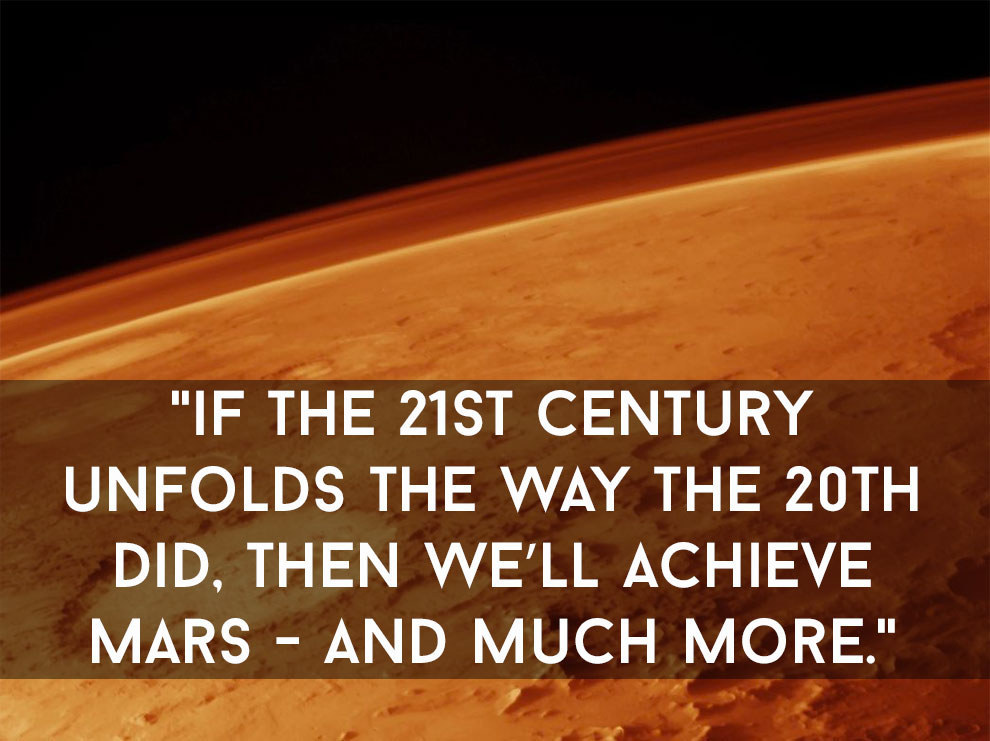
13. It's still totally worth it, though.
"If you and I were having this conversation 100 years ago, you'd have been saying to me: 'This Antarctica thing is a bit of a wheeze, very dangerous, and Amundsen did well but look at poor old Scott and his boys,'" he says. No one would have predicted that 50 years later, there would be permanent bases in Antarctica, filled with academics straight out of university, doing important research, flying in and out. They certainly wouldn't have predicted that there would be people flying to the moon. "So if the 21st century unfolds the way the 20th did, then we're set to achieve Mars and much more."
It's about exploration, he says. That's why we should be excited about Peake going to the ISS. "If you celebrate anything in his mission, you should celebrate exploration. You should celebrate the fact that we haven't stopped doing it."
• How to Survive in Space will be shown on BBC Four on 28, 29 and 30 December at 8pm. Find out more on the Royal Institution's website or by following @ri_science.
